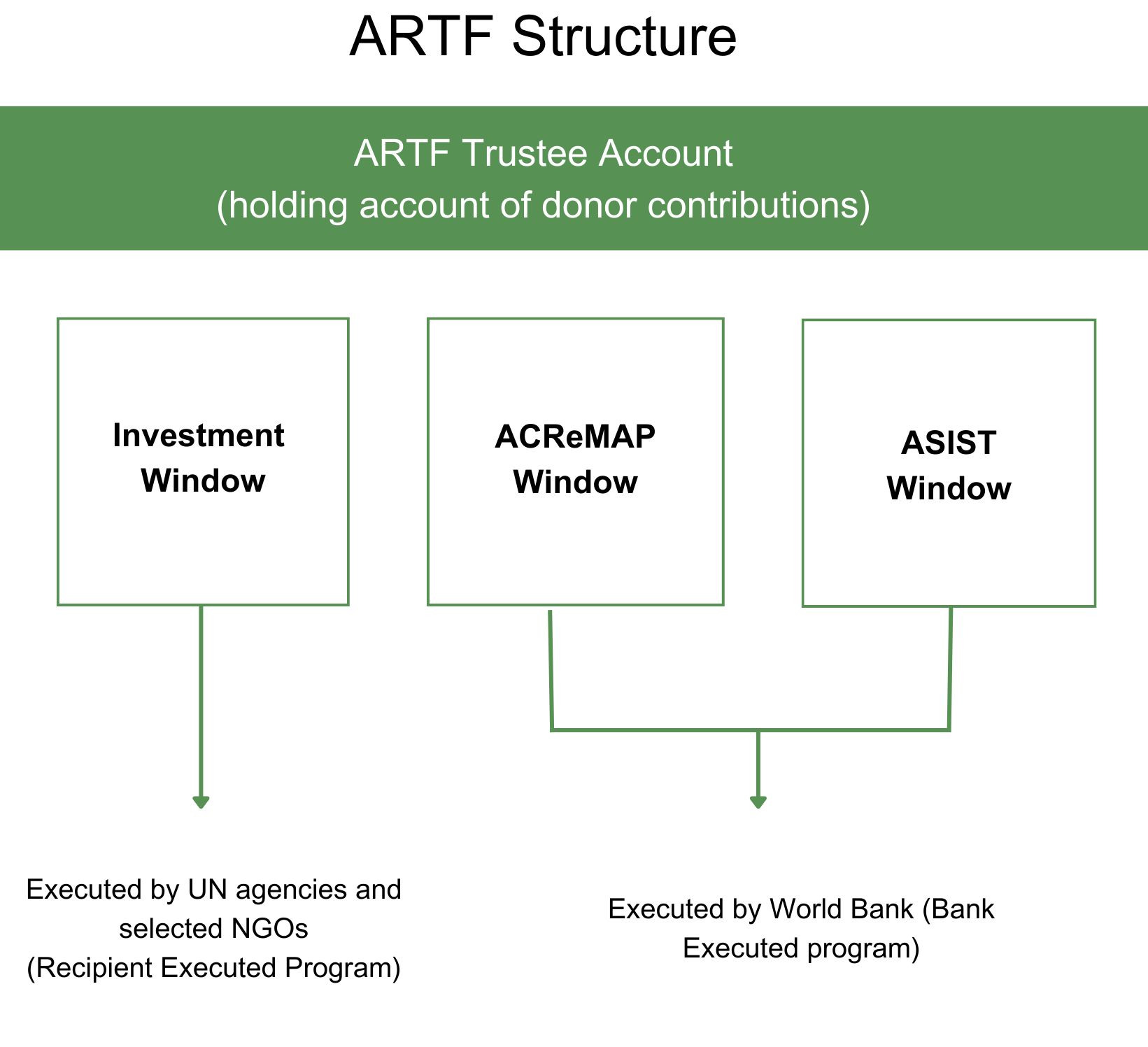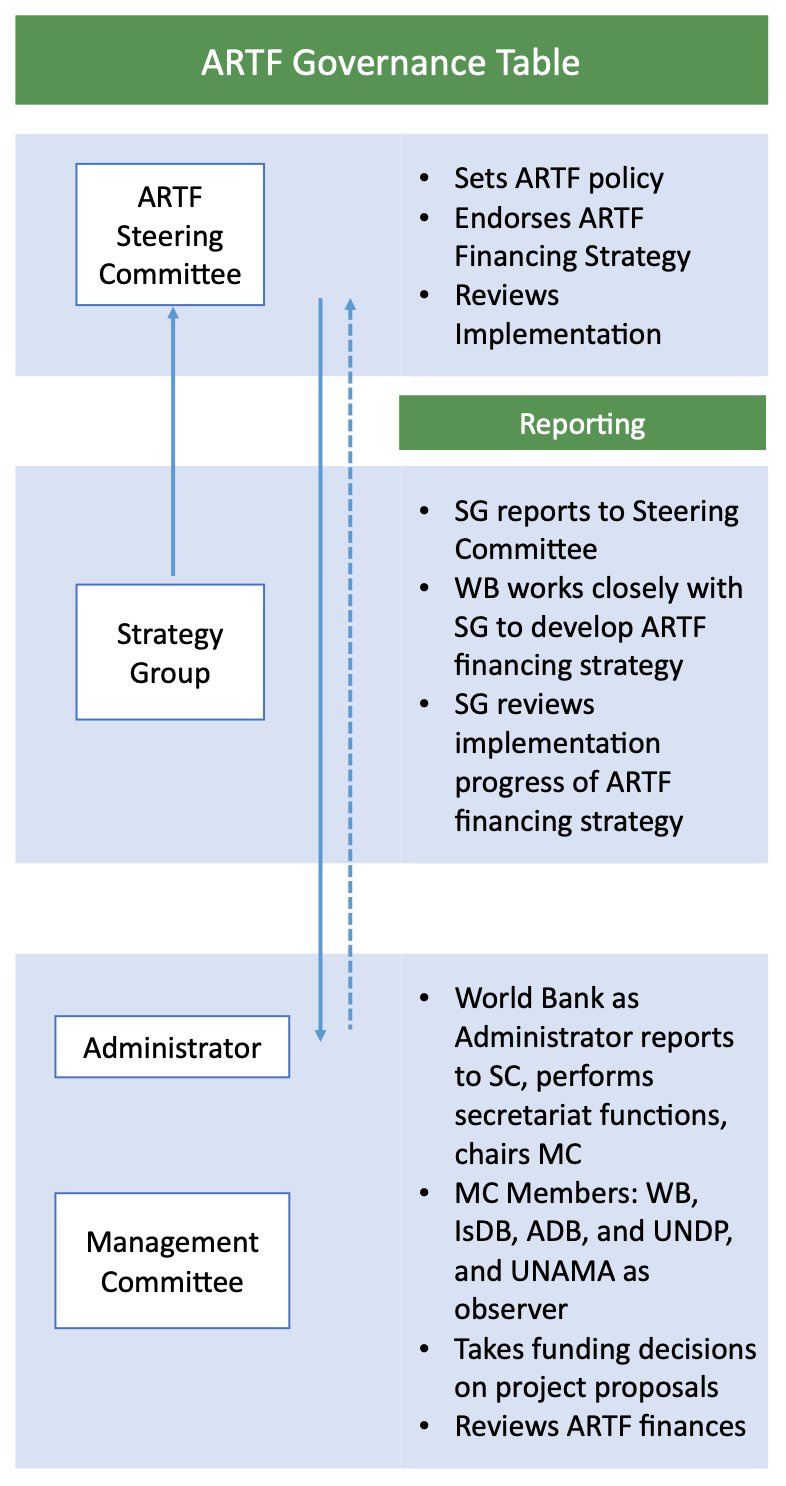ARTF allocations are made from the ARTF Trustee Account through the following active windows:
Investment Window (IW): It is executed by UN agencies and selected NGOS and provides grant financing for basic services and livelihoods. Browse active projects
Anti-Corruption and Results Monitoring Action Program (ACReMAP): It is executed by the World Bank and finances initiatives to enhance anti-corruption safeguards and result monitoring efforts in the ARTF portfolio and maximize the Trust Fund’s development impact.
Advisory Services, Implementation Support, and Technical Assistance (ASIST): It is established for advisory services, implementation support, and technical assistance. It is Bank-executed, in which World Bank technical specialists lead and execute ASIST-funded initiatives.

Governance Structure
The ARTF has a three-tier governance framework that plays a critical role in monitoring the ARTF program. Governance entities set policy and strategy, oversee finances and allocations, and manage contributions and administrative functions of the ARTF. The governance structure is detailed below:
ARTF Steering Committee (SC): Sets policy and the strategy for the ARTF. The SC consists of the World Bank and ARTF donor countries as members (ambassador-level representation). It makes decisions based on recommendations of the ARTF Strategy Group. Management Committee members serve as observers to the SC.
Management Committee (MC): Oversees ARTF finances and reviews proposals to commit ARTF funds, considering technical quality, alignment with the current financing strategy, and coordinated engagement with other major funding streams in Afghanistan. The MC consists of the World Bank as the Chair and the Asian Development Bank, the Islamic Development Bank, and the United Nations Development Programme as members. The United Nations Assistance Mission in Afghanistan serves as an official observer to the MC.
Strategy Group (SG): Supports the SC and MC, which contributes to the implementation of the ARTF program. The SG contributes to the development of ARTF strategy/approach, implementation of strategy and individual ARTF programs, and advises the SC on updates to the strategy/approach.
The World Bank serves as ARTF Administrator. In this capacity, the World Bank is responsible for ARTF finances. The World Bank also manages secretariat functions to monitor and report on ARTF program performance and convene governance meetings.
